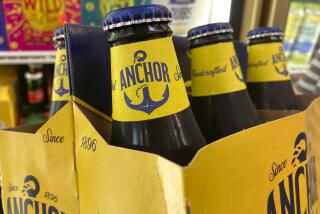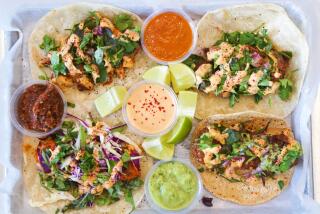How I Made It: Meet the Olympic hopeful who brewed her way into a male-dominated industry
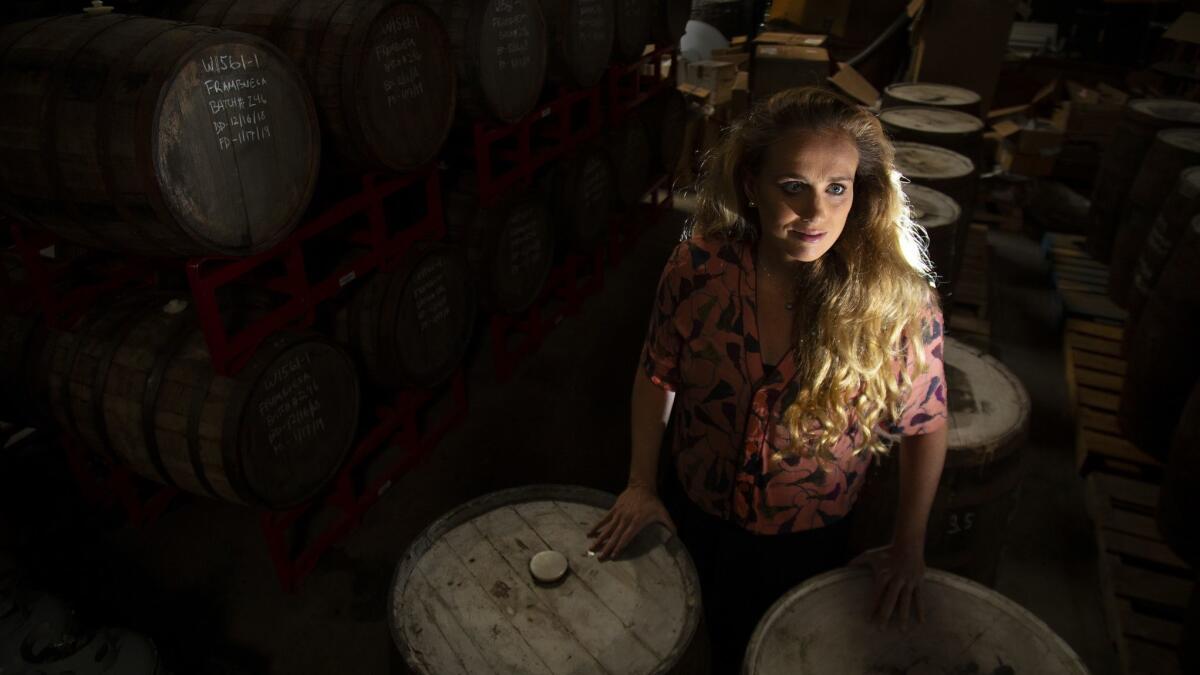
Meg Gill, 35, is president of Golden Road Brewing, the Atwater, Calif.-based craft beer maker that was acquired by Anheuser-Busch InBev in 2015. That was the year in which some of the biggest names in the foamy drinks market decided to dip their mugs into artisan brews to staunch market share losses from rising wine and hard liquor sales. Gill was just 27 when she co-founded Golden Road in 2011. It has 414 employees, and its beer is sold nationwide.
âThe first sipâ
Gill, the youngest of three children, recalls of her mother, âAt the end of the day, sheâd be fixing dinner and say, âIf you go down to the basement and get me a beer, then you can have the first sip.â Iâd always loved that first crisp, refreshing taste.â
Unexpected career
Aside from a taste for beer, nothing in Gillâs background even hinted at a career in craft brewing. She earned a degree in Classics, studying Greek and Latin, at Yale University. She was also a dedicated athlete and captain of her swim team. Gill was on a bike ride in Colorado âtraining for swimming Olympic trials and dabbling in triathlons,â she said, when her unexpected beer moment arrived. She met Dale Katechis, the owner of the pioneering Oskar Blues Brewery in Lyons, Colo., who helped sell her on the craft beer business.
âYou can have a business, employ a lot of people, make some dough and have fun,â Gill said. At Yale, âbeing an entrepreneur wasnât really talked about. It was more like, âAre you going to go to law school? Are you going to go to med school? Are you going to go to Wall Street?â And I didnât want to do any of that. I wanted to keep training and find something I was really passionate about. So, thatâs how it happened.â
Many lessons
At Oskar Blues, âI learned brewing, packaging,â Gill said. âI was sent to do events, talk to consumers, learning the marketing side of the business. Eventually I ended up doing distribution, opening new markets for them.â Later, while working at Speakeasy Ales and Lagers in San Francisco, Gill would make another important connection â this time with Tony Yanow, with whom she would later co-found Golden Road.
Untapped L.A.
San Franciscoâs craft beer scene in the mid-2000s was already âa mature market, and I kept getting pulled back to L.A. by retailers, bar owners, people saying, âCraft beer hasnât hit L.A.,ââ Gill said. âThatâs when I started looking seriously at the L.A. market. There were all these people who want to drink great products and thereâs no local craft beer here?â
A hundred times no
But setting up a brewery in Los Angeles wasnât going to be easy, even with the help of craft beer expert and partner Yanow, who wound up taking out a second mortgage on his house to help fund the effort. Early on, backers were few; Gill said she got ânoâ for an answer at least a hundred times from venture capitalists and other investors.
âI would get these meetings and they would say, âWell, we look for an exit in three to five yearsâ and âThis seems way too capital intensive and way too risky for us to get involved at this point.ââ
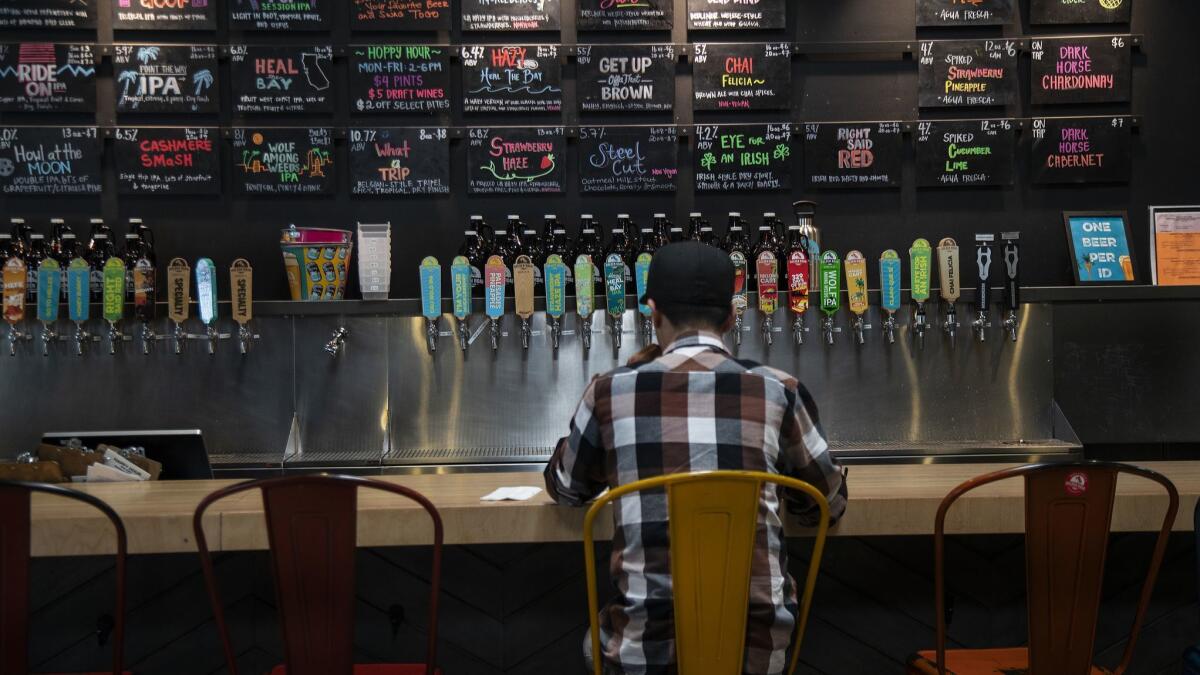
Careful launch
To get off to the fastest start possible, she needed to have an excellent beer. Gill had hired former Dogfish Head assistant brewer Jon Carpenter, but that wasnât all. It was crowd consulting in a big way.
âWe brought in 30 bars and the biggest distributors in L.A. before we had a product and said, âHelp us build a brand,ââ Gill said at the time. âThatâs what made our distribution so successful. Itâs been the community. This is the beer that L.A. built.â
In less than four years, Golden Roadâs annual production grew to âin the 40,000-barrel range,â Gill said, which works out to more than 1.2 million gallons. âIt was one of the fastest-growing craft breweries.â
Just right
Although Golden Road was fast in launching, it takes time to get each flavor exactly right, Gill said. For instance, Gill wanted the breweryâs Mango Cart beer to taste like the mangoes she used to get from a sidewalk vendor.
âIt took a couple of years to develop that exact one. Our mango beer is one of the beers thatâs contributing the most to our growth. And it won a World Beer Cup gold medal last year,â Gill said. âWe wound up using real mango puree in it, directly from the fruit. So that makes a big difference in the taste.â
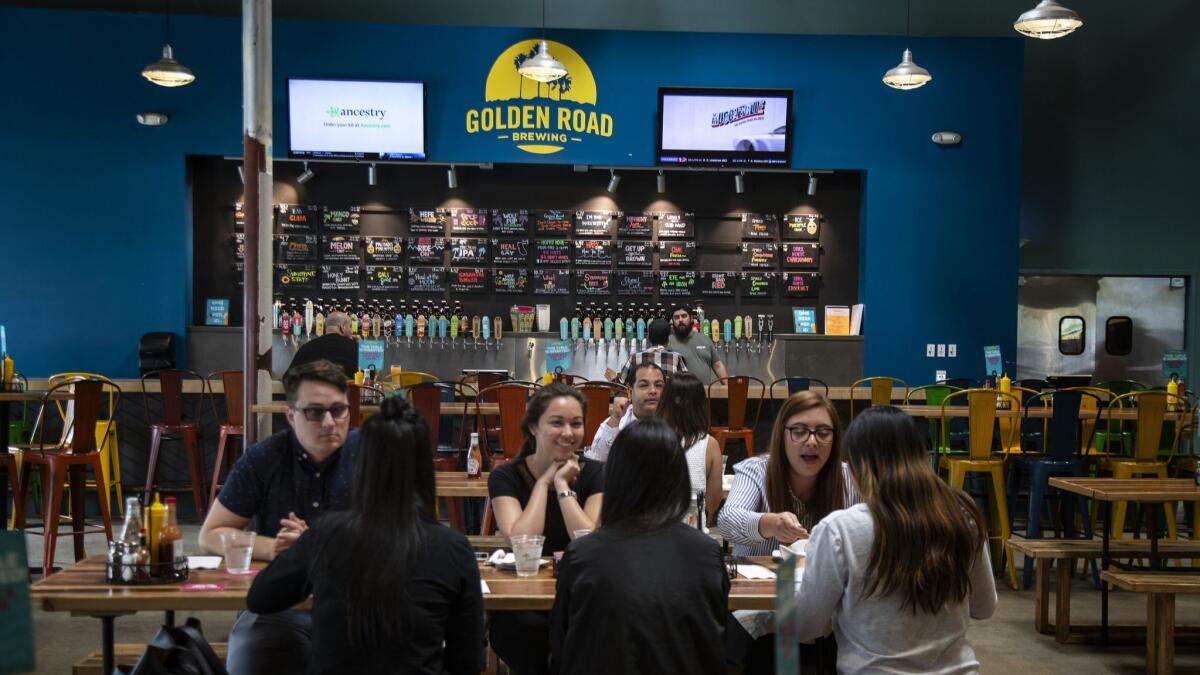
Distribution challenge
Golden Road found itself running into what is perhaps the craft beer industryâs biggest challenge: competing with deep-pocketed giants such as Anheuser-Busch while new entrants to the market nip at their heels.
Cracking the distribution barrier, which favors big-name brands and big-time money, has been craft beerâs greatest challenge, particularly in sprawling Southern California. Bringing Golden Road under the aegis of Anheuser-Busch, Gill said, âwas a good partnership for AB as well as for us. Weâve only expedited our growth.â
âBeerlandâ
One of the most unusual routes Gill has taken to both sell her brand and encourage growth in the craft beer industry has been to host her own television show, called âBeerland,â which ran on the Viceland channel for three seasons. Gill would judge the offerings of local home brewers around the U.S. to determine which was best. It took great trust in her employees to allow Gill to do it.
âThe team here has gotten better and better,â Gill said. âWe have operators at all of our locations that are fully autonomous, that we trust and who allow me to go, whether itâs to do a TV show or work on new products.â
Growth
Golden Road continues to grow. Thereâs the original brewery and pub in Atwater Village and a smaller brewery and pub in Anaheim. Thereâs also a Point the Way Cafe at Los Angeles International Airport, a stand at downtown L.A.âs Grand Central Market and a pub in Sacramento. In the works is an 8,800-square-foot restaurant and brewery set to open in Huntington Beach this year.
Personal
Gill says she still maintains an active exercise schedule, âswimming and playing golf and surfing and all things outside, looking for that balance to be able to have and enjoy a beer at the end of the day.â
More to Read
Inside the business of entertainment
The Wide Shot brings you news, analysis and insights on everything from streaming wars to production â and what it all means for the future.
You may occasionally receive promotional content from the Los Angeles Times.

